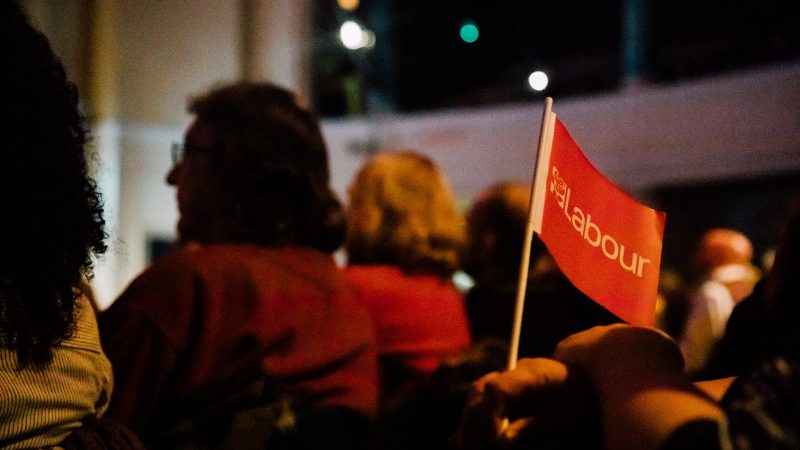
The country is going through the agony of being governed by one political persuasion in one party. Whether in relation to the economy or politics, whenever there are complex things to do or say, monopolies no longer work. Across the globe, democracy and real debate are in retreat as countries as close to home as Italy and Sweden opt for governments led or influenced by right-wing populists.
That is why it is worrying what is happening in Labour selections, as the central party both narrows the range of political candidate choices available and in the process weakens our democratic culture – signalling that control trumps democracy and pluralism.
Especially in an age of chaos and polycrisis, politics needs openness, challenge, imagination and creativity – things that can only come from diversity, collaboration and pluralism. Frankly, a cohort of identikit and unchallenging politicians is not going to help Labour cope with the chaos and complexity of what lies ahead.
Of course, we all want to win the next election and all candidates should meet minimum public standards. But dramatically narrowing the range of candidates eligible for parliamentary selection on increasingly spurious grounds will not help Labour win office or transform the country. The new, long and deep settlement we need for the environment and the economy will not be imposed by a few but can only be negotiated by all.
As has been widely reported, ‘evidence’ presented to candidates to justify blocking them from shortlists is spurious – ‘liking’ tweets by non-Labour politicians, for example. Candidates have also been penalised for striking cooperation agreements with other parties to secure a progressive council where no single party can govern alone, therefore denying Tory rule. Disagreement with the policy direction of the leadership is also held against candidates.
These standards are not being applied evenly. Favoured candidates of the leadership are being waved through, whatever their past actions, while those on even the ‘soft left’ – often with broad trade union support – are being targeted. In Bury South, a former Tory MP who defected to Labour, has been waved through the whole trigger process with no local democratic decision making at all.
The motive for this is easily understandable; one side wants to gain all power and influence and stifle dissent. This zero-sum game between right and left has always gone on. Within sensible limits, it is understandable and inevitable. But it is now reaching dangerous levels. A price will be paid by the party – and the country.
If allowed to continue it will narrow the vision, experience and views within the Parliamentary Labour Party in ways that are concerning – rewarding and promoting only those who agree with the leadership politically and closing down the space for new and different ideas and fresh thinking. Without challenge, even well-intentioned people start to make mistakes.
And it will undermine Labour’s credibility on democratic reform. The party cannot prioritise control over participation internally but expect to be taken seriously on issues like decentralisation and wider democratic reform. The democratic impulse must run constantly throughout the party to have credibility.
Labour’s greatest achievements were based on broad alliances. In 1945, it was a Labour government that created the post-war settlement, but it was based on the ideas of liberals such as Keynes and Beveridge. In 1997, New Labour reached out to the Lib Dems, working with them electorally and intellectually.
Across the globe parties like Labour win, flourish and deliver when they form broad alliances: Joe Biden with the left of the Democrats to deliver on green transition policies; Olaf Scholz in Germany working with the left in the SPD as well as with Greens and Liberals in government; and Jacinda Ardern in New Zealand, going out of her way to work with the Greens even though she has a parliamentary majority. Closer to home, Labour First Minister Mark Drakeford forged a governing coalition with Plaid Cymru to build a more equal and democratic Wales.
The idea that one faction in one party – be it on the left or right – can surmount the complex challenges and opportunities of the 21st century and impose a future is a non-starter. Everyone in politics has histories and baggage – which is especially apparent in an age dominated by social media. But telling a candidate that they can’t stand for the party they have dedicated their life to because, for example, they were glad Nicola Sturgeon was free of Covid, is simply wrong.
Labour must be a beacon of the best democratic structures and cultures. This spurious and factional dismissal of talent and breadth needs to stop – not for the good of the left, or the right if the tables are turned – but so that a Labour or Labour-led government can win and govern successfully. You can read and sign my full open letter to Labour’s general secretary here.




More from LabourList
‘Tackling poverty should be the legacy of Keir Starmer’s government’
‘The High Court judgment brings more uncertainty for the trans community’
‘There are good and bad businesses. Labour needs to be able to explain the difference’